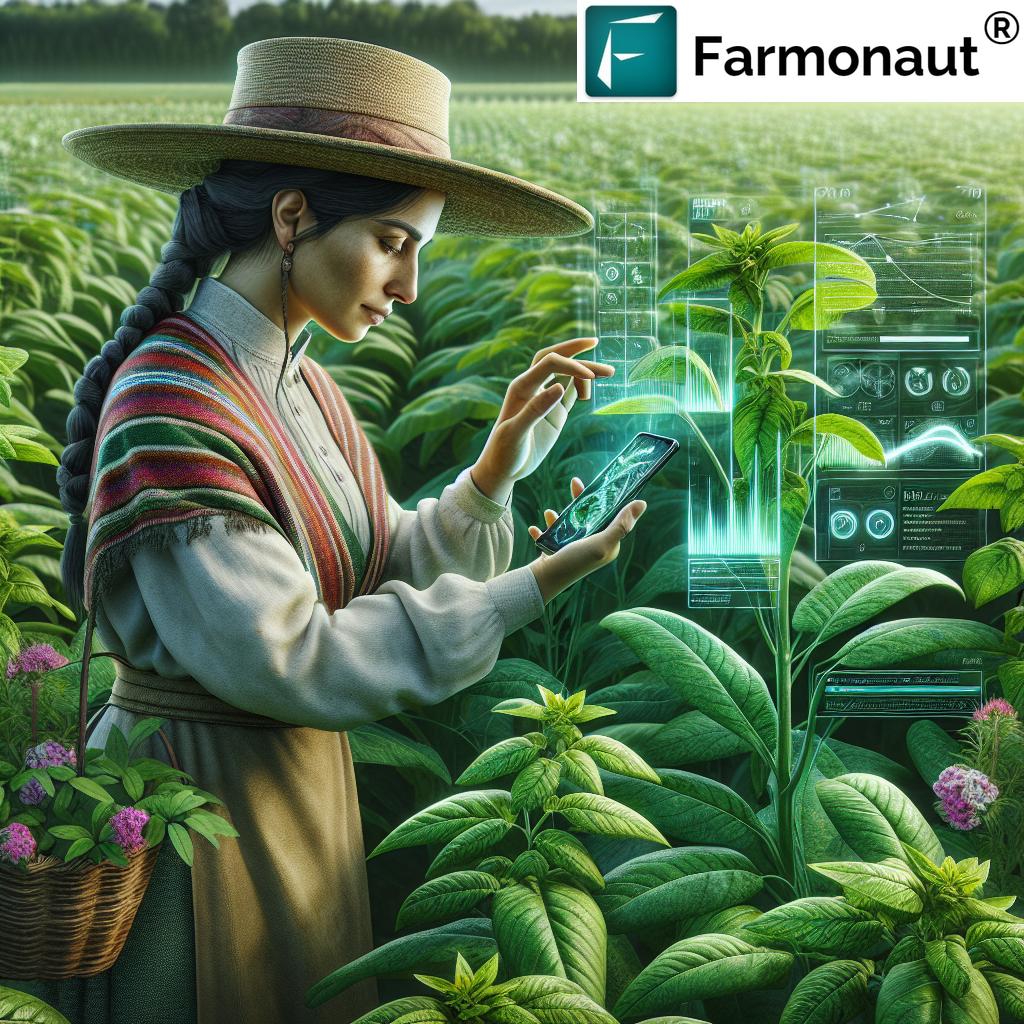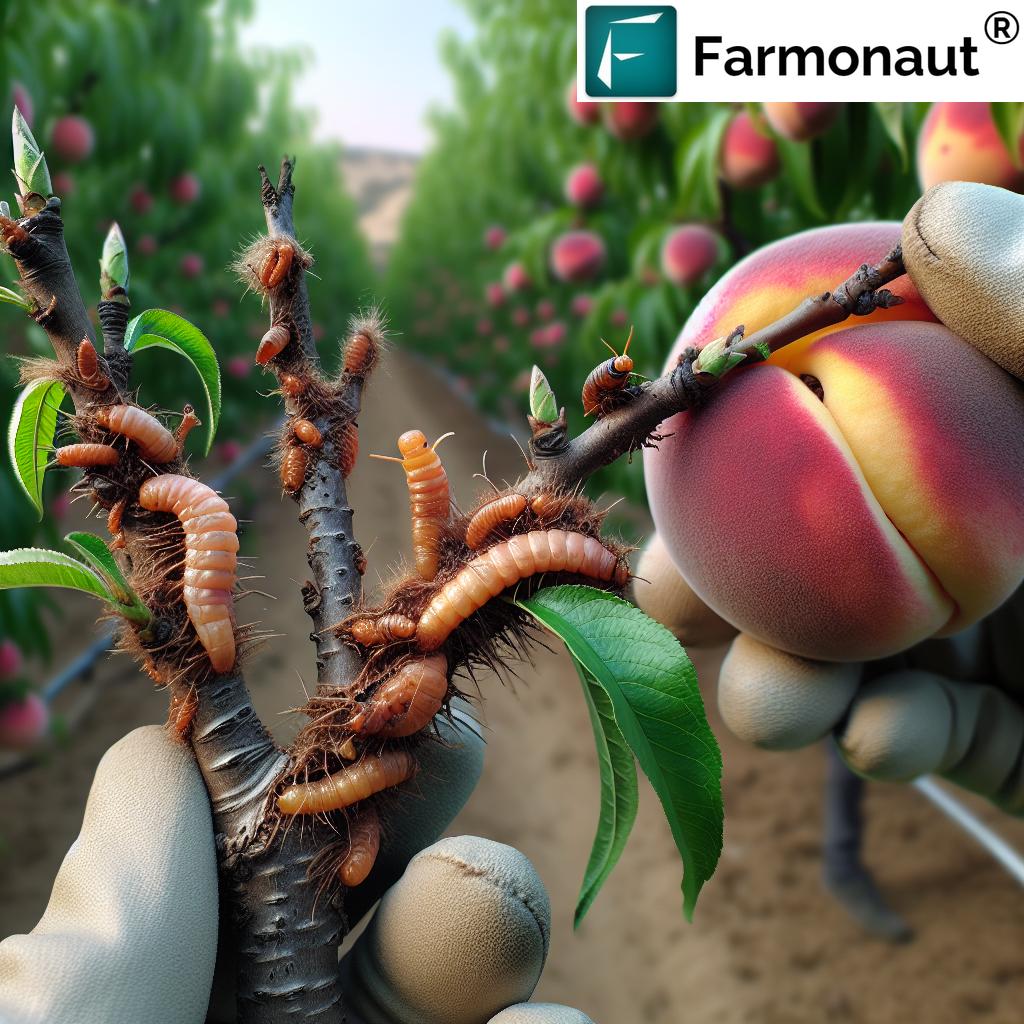Diploma of Agronomy 2025: Unlock Sustainable Farming Success
Introduction: The Vital Role of a Diploma of Agronomy in 2025
In the dynamically evolving landscape of agriculture, the significance of specialized education and training is increasingly paramount. Among the most impactful educational pathways, the diploma of agronomy stands out as a vital credential for those seeking to contribute effectively to modern farming, sustainable crop production, and resource management. As our global population is projected to exceed 8 billion by 2025, we face pressing challenges: climate change, soil degradation, and the urgent need for enhanced food security.
As the world confronts these agricultural and environmental challenges, the role of agronomists equipped with practical knowledge, technical skills, and sustainable practices becomes more critical than ever. The agronomy diploma is especially relevant in 2025 and beyond, opening career opportunities and enabling individuals to become leaders in sustainable food production and environmental resilience.
Understanding the Diploma of Agronomy
The diploma of agronomy—also known as an agronomy diploma or diploma in agronomy—is a comprehensive educational credential that typically encompasses advanced training in:
- Soil science and health management
- Crop production and cropping systems
- Integrated pest and disease management
- Irrigation techniques and water management
- Sustainable agricultural practices and resource optimization
- Precision agriculture tools and technology integration
- Environmental impact assessment and climate resilience strategies
These programs are designed to bridge the gap between theoretical agricultural science and practical farming systems, enabling students to become proficient in analyzing field conditions, selecting appropriate crops, and implementing advanced agronomic practices to maximize yield while minimizing environmental impact.
Comparative Outcomes Table: Agronomy Diploma Learning Modules
| Learning Module | Sustainable Farming Skill Acquired | Estimated Environmental Impact | Career Opportunities Enhanced |
|---|---|---|---|
| Soil Health Management | Soil analysis, organic amendments, erosion control | Up to 20% improved soil fertility, reduced degradation | Soil scientist, farm manager, environmental consultant |
| Precision Agriculture | Remote sensing, data analytics, variable rate tech | Up to 15% less water usage, 10% lower fertilizer use | Precision ag specialist, GIS analyst, agri-tech advisor |
| Crop Rotation Strategies | Rotational planning, biodiversity, disease control | Up to 14% higher yields, enhanced carbon sequestration | Cropping system planner, sustainability officer |
| Integrated Pest Management | Biological controls, monitoring, eco-friendly pesticides | Up to 35% reduction in chemical pesticide usage | IPM advisor, field officer, regulatory inspector |
| Digital Farm Monitoring | IoT, drones, satellite imagery, app-based alerts | Real-time mitigation, reduced resource wastage | Farm data analyst, agronomy technician |
Importance in Modern Agriculture & Sustainability
The importance of the diploma of agronomy in modern agriculture cannot be overstated. In 2025, global food security is under intense pressure due to a rapidly increasing population and limited land resources. Efficient, sustainable farming methods and crop management are paramount to meet demand and protect the environment.
- Agronomy diploma graduates become specialists in improving crop resilience, optimizing fertilizer usage, and bolstering food production.
- The curriculum increasingly incorporates climate-smart techniques to adapt to unpredictable weather patterns and reduce greenhouse gas emissions.
- Holders of the agriculture diploma play a vital role in designing cropping systems that conserve water, maintain soil health, and enhance biodiversity—all essential for long-term agricultural sustainability.
Modern agronomists must balance production goals with impact minimization, recognizing that sustainable systems are critical not just for farming success, but for the health of our global environment.
Agronomy Diploma Curriculum: Building Future Skills
A diploma in agronomy typically encompasses both comprehensive theoretical instruction and practical hands-on training. The curriculum is designed to ensure graduates can analyze conditions, select crops, and implement advanced agronomic practices to maximize yield and minimize environmental impact.
Core Areas Typically Covered
- Soil Chemistry, Physics, and Biology—ensuring soil fertility and long-term soil health
- Plant Physiology and Crop Science—understanding crops and production systems
- Climatology, Hydrology, and Irrigation Techniques—enabling water conservation and resource management
- Integrated Pest and Weed Management—reducing dependence on chemicals for better sustainability
- Agricultural Economics—equipping graduates for effective farm business management
The diploma curriculum is increasingly tailored for 2025 and beyond, reflecting modern food systems and environmental challenges. Students learn to adapt agronomic practices for climate resilience and drive sustainability across agricultural communities.
Access satellite-powered digital farm monitoring and soil analytics anytime, anywhere with the Farmonaut App!
Integrating Technology: Precision Agriculture & Digital Tools
The 2025 agronomy diploma recognizes that technology is redefining every aspect of crop production and farming management. Graduates are trained to use precision agriculture tools, which leverage data, sensors, satellite imagery, and AI to optimize:
- Resource allocation (water, fertilizer, energy)
- Yield prediction
- Real-time crop health monitoring
- Pest and disease detection
- Field variability analysis
- Environmental impact measurement and carbon accounting
Precision farming methods enable data-driven decisions that minimize waste and environmental impact, making agriculture diploma holders essential for modern, sustainable food systems.
A diploma in agronomy ensures graduates become proficient in analyzing satellite data, drone imagery, and IoT sensor feeds, preparing them for employment with digital-first agricultural businesses and smart farm operations.
Leverage Farmonaut for Digital Transformation
We at Farmonaut help agronomy diploma graduates and agricultural professionals unlock the power of satellite monitoring, AI analysis, and blockchain traceability. Our API and Developer Documentation make satellite insights accessible for integrating with farms, research, and agri-technology systems.
Get started with our web app or deploy Farmonaut’s APIs for custom farm analytics and specialized agronomy solutions.
Example: Resource Management & Climate-Smart Solutions
Through Fleet & Resource Management tools, Farmonaut enables agriculture diploma holders and farm businesses to:
- Track heavy machinery and vehicles for optimal usage
- Reduce unnecessary fuel consumption and carbon emissions
- Ensure safer, more efficient production cycles
Explore blockchain-based traceability for supply chains with Farmonaut Traceability Solutions, improving transparency and consumer trust from “farm to fork”. For large scale farm operations, Farmonaut Large Scale Farm Management makes overseeing multiple fields and staff seamless and data-driven.
Farmonaut: Empowering Agronomy Diploma Graduates
At Farmonaut, we believe that agronomy diploma graduates are at the vanguard of transforming global agriculture. Our cost-effective satellite solutions and advanced analytics tools empower individuals, businesses, and governments with:
- Real-time monitoring for crop health, soil conditions, and resource management—enabling immediate agronomic insights.
- AI-based advisory systems (like our Jeevn AI) giving customized strategic guidance to optimize yields and inputs.
- Blockchain-integrated transparency for verifying the sustainability and origin of food products, directly from production to point of sale.
- Environmental impact monitoring, vital for regulatory compliance and advancing sustainability goals—discover more on our Carbon Footprinting product page.
By integrating these digital tools into agriculture diploma programs, graduates become adept at leveraging the latest technology for practical, environmental, and economic success.
Career Prospects and Industry Impact for Diploma Holders
Holding an agriculture diploma—with a specialization in agronomy—unlocks diverse career opportunities in 2025 and beyond. Graduates are in demand by:
- Farming businesses implementing sustainable, high-efficiency operations
- Government agencies focused on food security, climate action, and environmental policy
- Research institutions dedicated to crop innovation and resilience
- Agri-consulting firms delivering technical agronomic advice
- Land management and reforestation initiatives globally, advancing ecological balance
- Technology providers (like Farmonaut) transforming digital agriculture
Popular job titles for diploma holders include: Agronomy Technician, Soil Analyst, Farm Manager, Field Officer, Sustainability Specialist.
With the shift to data-driven agriculture, skills in GIS, remote sensing, AI-powered analytics, and blockchain-based traceability are especially relevant (see our Farmonaut Traceability product page for more info). Graduates who master these tools contribute substantially to minimizing waste, optimizing input usage, and improving the sustainability of food production systems.
Supporting Food Security, Sustainability, and Rural Communities
- The demand for agronomy diploma holders continues to grow as global leaders emphasize food security and sustainable production.
- Many graduates become advisors and educators, helping rural communities improve livelihoods through the transfer of vital agronomic knowledge and practices.
Explore how Farmonaut’s satellite-powered crop loan and insurance services help agronomists and farm operators access fairer financial products, leveraging objective remote sensing data.
Advancing Sustainable Practices: The Environmental Impact
At the heart of the diploma in agronomy is sustainability—both in curriculum design and industry application. Graduates learn to:
- Implement regenerative agriculture practices like crop rotation, cover cropping, and integration of organic amendments—restoring soil health and sequestering carbon.
- Adapt systems for climate resilience using climate-smart agriculture, which helps communities and countries meet greenhouse gas reduction targets and enhance biodiversity.
- Design cropping patterns that minimize water usage and promote landscape diversity—for instance, orchards interplanted with legumes or rotational grazing systems.
- Transfer knowledge at the grassroots, empowering smallholder farmers and local communities to adopt eco-friendly, cost-effective strategies.
As soil degradation and climate variability threaten production, such out-of-the-classroom impacts are increasingly vital for sustainable food security worldwide.
For companies and large farms, Farmonaut’s large-scale farm management platform (Agro Admin App) streamlines digital monitoring, integrating remote sensing data for thousands of fields—helping certified agronomists track environmental impact and ensure best sustainable practices are always in place.
Sustainability: Measurable Results
The most impactful agronomy diploma modules deliver real, measurable environmental outcomes—such as 15% lower water usage, substantial carbon footprint reductions, and up to 35% less pesticide use. Professional training now focuses on practical, actionable sustainability metrics, and not just theory.
Farmonaut Subscription Plans
Ready to take your agronomy diploma skills into practice with professional satellite, AI, and blockchain solutions?
Explore Farmonaut’s flexible subscription options below–tailored for farmers, diploma holders, agriculture businesses, and research institutes.
Invest in affordable, scalable satellite & AI-powered farm monitoring—upgrade your agronomy impact for 2025 and beyond!
Frequently Asked Questions (FAQ)
What is the difference between a Diploma of Agronomy and a general Agriculture Diploma?
While all agriculture diplomas cover foundational aspects of farming and crop production, the diploma of agronomy specializes in advanced soil, crop, and resource management. It places stronger emphasis on precise management techniques, digital tools, and sustainability practices relevant for 2025 and future food systems.
How will a Diploma in Agronomy prepare me for future agriculture jobs?
The diploma in agronomy equips you with practical skills (e.g., soil analysis, digital monitoring, GIS, pest management) and technical knowledge needed for the modern agricultural sector. These are career-enhancing assets as agriculture becomes ever more data-driven, technology-focused, and sustainability oriented.
What technology should Agronomy Diploma holders master for 2025?
Key technologies include: satellite-based monitoring, AI-powered advisory, blockchain traceability, digital farm management apps, and precision farming equipment. Mastery over these ensures that diploma holders can manage modern crops and systems while reducing environmental impact.
Can the Agronomy Diploma help with starting a sustainable farming business?
Absolutely. The agronomy diploma is designed to help individuals become proficient in production planning, resource management, and advanced agronomic practices—all essential for running a sustainable agricultural enterprise in 2025.
How does Farmonaut support diploma holders and agricultural graduates?
We at Farmonaut offer satellite imagery, remote monitoring, AI-based advisory, and blockchain-enabled traceability tools. This allows agronomy graduates and farm operators to efficiently manage, monitor, and improve crop health, soil condition, and environmental outcomes on any scale, from smallholder plots to industrial farms.
Conclusion: Why the Diploma in Agronomy Matters for 2025 & Beyond
Pursuing a Diploma of Agronomy in 2025 is a strategic investment—for individuals passionate about agriculture, for the industry’s future, and for the planet. This credential not only equips graduates with essential skills to tackle contemporary agricultural challenges, but also positions them as key contributors to global food security and environmental conservation.
As farming continues to evolve with innovative technologies and an emphasis on sustainability, agronomy diploma holders are indispensable for shaping the future of agriculture worldwide. By integrating knowledge, science, and technology, the next generation of agronomists will rise to meet the world’s pressing challenges with resilience and expertise.
Your journey to supporting sustainable, technology-driven agriculture in 2025 starts with the agri diploma — and with visionary digital tools like those we offer at Farmonaut.









